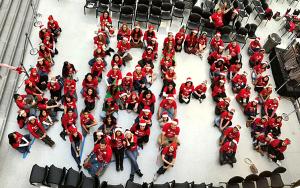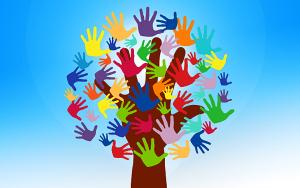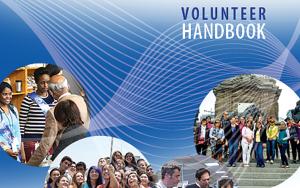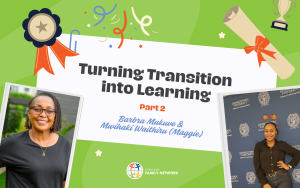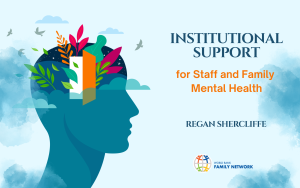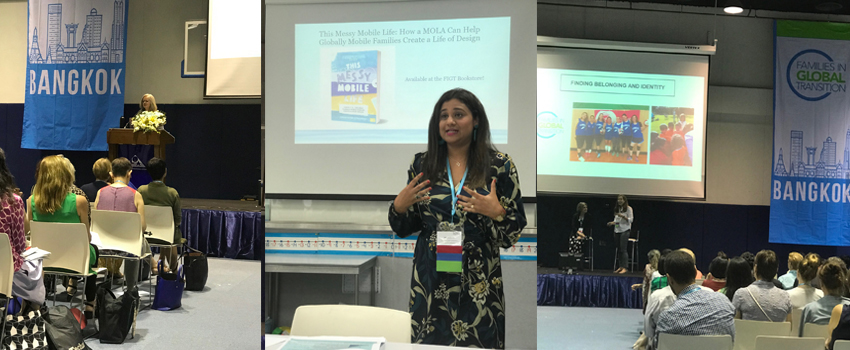
Relocation used to be confined to the diplomatic service, the military, and a few international organizations like the WBG, but in recent years the number of people moving internationally for work has radically increased, which has led to more focus on the effects of relocation on family members. An organization, Families in Global Transition (FIGT), is a welcoming forum for globally mobile individuals. It holds annual conferences to showcases businesses, and promote research and unique work related to the internationally-mobile family.
The conferences have been held in the US, the Netherlands and this spring in Bangkok, where there were about thirty formal presentations, twenty-four “kitchen table” presentations (allowing for conversation), seven “lightning” sessions (shortened), five poster sessions, and two large panel discussions as well as several key-note addresses. Topics included:
Education (transitioning to international schools and then back to non-international universities; staffing of schools)
Creating a portable business or career in an NGO
Parenting in another culture
Family law when overseas (e.g., custody/sharing arrangements of children)
Relationships (communication, handling stress)
Coaching supports
Special needs children internationally
Mental health (stress, addiction—said to be the #1 problem for expat families)
Identity and belonging (this is explored in multiple ways by many presenters)
Leadership and decision-making skills when confronting difficult choices
Volunteering/contributing while overseas
A relocation partner survey initiative
Cross-culture issues (stresses and strengths)
Third culture kids (TCK)/cross culture kids (CCK) and adults (results of a survey)
Terminology/labeling explored (e.g., TCK)
Virtual psychotherapy services
Art, music and story therapy as ways to handle stress/connect
Staying connected with social media
Returning home and its challenges
Research on aspects of global relocation
Personal stories
Presentations were given by individuals running their own businesses, most with extensive personal relocation experience, and companies working in the area of relocation. (One presentation was given by a WBFN member, Oksana Holtmann.)
This year, the WBFN sent two members, Ghadir and Scott, to the conference. Both are spouses living in country office locations and working as regional champions for our organization. As regional champions, it is their job to help our members before, during and after relocation by building and maintaining communities among WBG families in country office locations, as well as connecting up newcomers to these communities for support, information, and the social well-being of the family in general.
Ghadir and Scott attended as many sessions as possible (a lot!) and have submitted reports to the WBFN management, as well as the results of their networking, which will help WBFN stay current on services and research on global mobility. It should be noted here that the WBG is seen as an industry model for spousal and family support by the FIGT community—because of the work of the WBFN. In the past, WBFN has given presentations at many conferences: Yvonne Quahe (career support), Anne Folliet (partnership with corporate relocation support, with Yvonne), El Batoule Alaoui (domestic abuse prevention), Anne Ladegaard (worldwide support), and Catherine Mathieu (expatriation and retirement, with Yvonne).
If you would like to know more about how relocation can affect you—the spouse—and the family, or you are looking for business opportunities in the globally mobile community and other ways to grow from the experience of moving, a good place to start is to look at the summaries of the presentations and bios of the presenters: by visiting the FIGT conference site here.
In some cases, the presenters have published books, and most have web pages where you can follow up. We think you will be amazed at the scope of the growing field of families in global transition.

